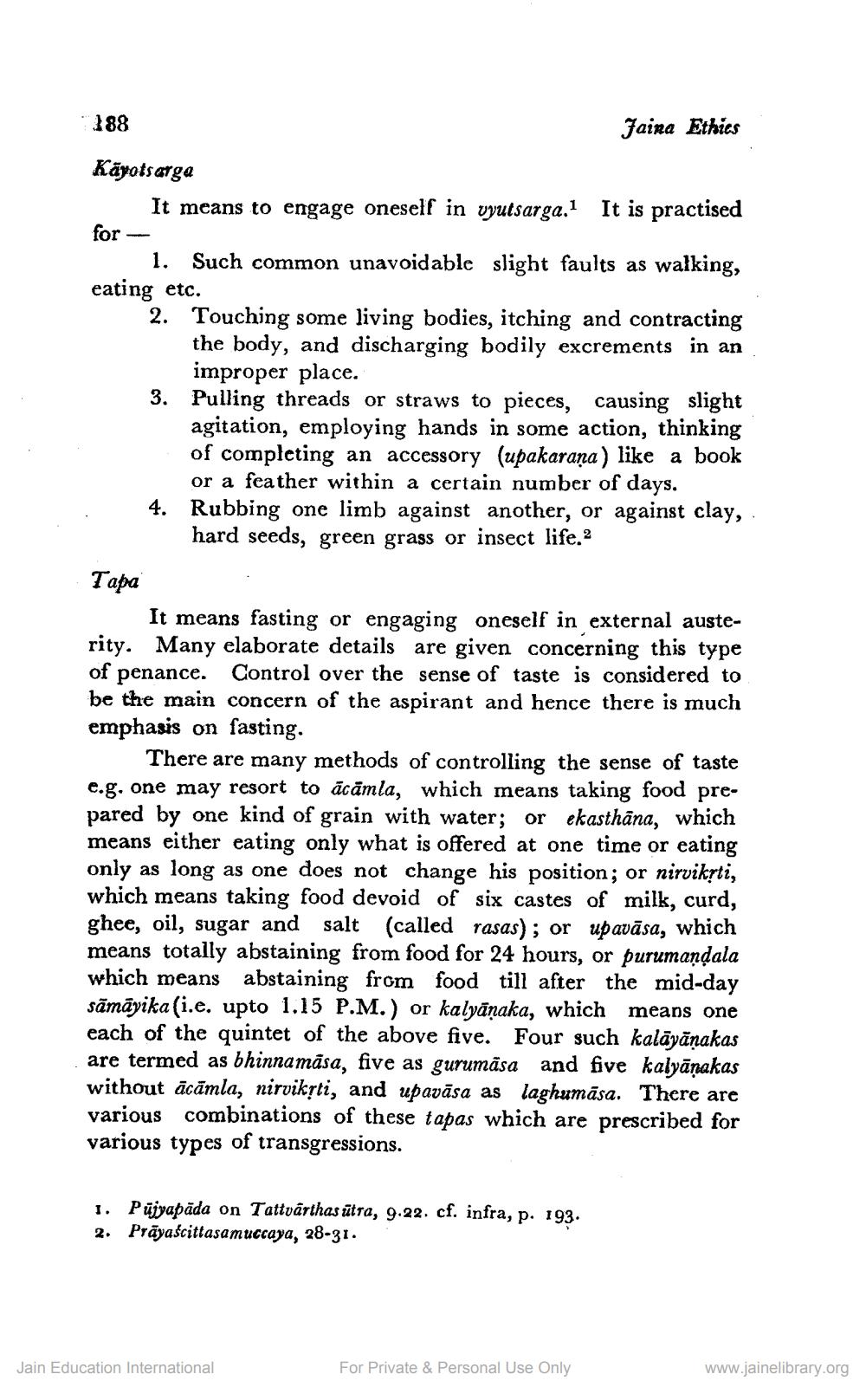________________
288
Jaira Ethics Kāpotsarga
It means to engage oneself in vyutsarga." It is practised for
1. Such common unavoidable slight faults as walking, eating etc.
2. Touching some living bodies, itching and contracting
the body, and discharging bodily excrements in an
improper place. 3. Pulling threads or straws to pieces, causing slight
agitation, employing hands in some action, thinking of completing an accessory (upakarana) like a book
or a feather within a certain number of days. 4. Rubbing one limb against another, or against clay, -
hard seeds, green grass or insect life.?
Tapa
It means fasting or engaging oneself in external austerity. Many elaborate details are given concerning this type of penance. Control over the sense of taste is considered to be the main concern of the aspirant and hence there is much emphasis on fasting.
There are many methods of controlling the sense of taste e.g. one may resort to ācāmla, which means taking food prepared by one kind of grain with water; orekasthāna, which means either eating only what is offered at one time or eating only as long as one does not change his position; or nirvikyti, which means taking food devoid of six castes of milk, curd, ghee, oil, sugar and salt (called rasas); or upavāsa, which means totally abstaining from food for 24 hours, or purumandala which means abstaining from food till after the mid-day sāmāyikasi.e. upto 1.15 P.M.) or kalyāņaka, which means one each of the quintet of the above five. Four such kalāyāņakas are termed as bhinnamāsa, five as gurumäsa and five kalyānakas without ācāmla, nirvikrti, and upavāsa as laghumāsa. There are various combinations of these tapas which are prescribed for various types of transgressions.
1. Pujyapäda on Tattvärthasūtra, 9.22. cf. infra, p. 193. 2. Prāyaścittasamuccaya, 28-31.
Jain Education International
For Private & Personal Use Only
www.jainelibrary.org




